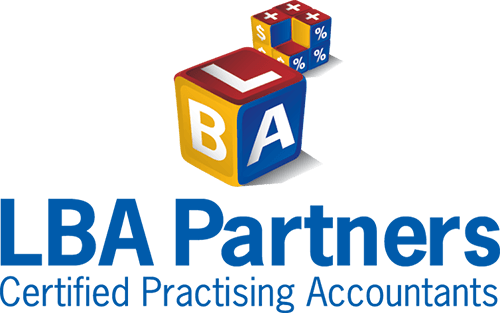Here's our latest newsletter, if you would like to follow up any of the information please contact Linda or Grahame
P r a c t i c e U p d a t e
June 2015
ATO warns about aggressive phone scams
The ATO is again warning the public to be aware of a phone scam that is circulating, where fraudsters are intimidating people into paying a fake tax debt over the phone.
The aggressive scam attempts to force people to pay a fake tax debt immediately by threatening arrest if they do not comply.
Editor: If any client receives a call from the ATO we recommend that they should ask for the caller's name and either call our office with the details or phone them back through the ATO's switchboard on 13 28 69.
Holiday homes that taxpayers rent out
Editor: The ATO has updated its information guide on claiming deductions on holiday homes. This may have something to do with its stated intention to increase its audit focus on holiday homes that are rented out.
Clients with such holiday homes may want to take notice of the following.
Claiming deductions on holiday homes
The principles that apply to a rental property also apply to a holiday home if it is rented out.
If a taxpayer rents out their holiday home, they can claim expenses for the property based on the proportion of the income year it was rented out or was genuinely available for rent.
They must apportion their expenses if the property is used:
- for private purposes for part of the year – such as when they use it themselves, or allow their family, relatives or friends to use it free of charge; and
- by family or friends for part of the year and they are charged less than market rent.
If their holiday home is rented out to family, relatives or friends below market rates, their deductions are limited to the amount of rent received for that period.
Tax Tip: Keeping records for CGT purposes
Editor: Clients who own holiday houses should be aware that they need to keep records of their expenses.
If they make a capital gain when they sell the property, the proportion of expenses (interest, insurance, maintenance costs and council rates) they could not claim a deduction for are taken into account in reducing the amount of their capital gain.
Early access to super for people with terminal illness
The Assistant Treasurer has announced that, from 1 July 2015, the government will amend the provision for accessing superannuation for people suffering a terminal illness.
Under the current provision for early access to super, a person with a terminal illness is required to obtain a certification from medical specialists that they have less than 12 months to live.
The relevant regulations will be amended to change the life expectancy period from 12 months to 24 months.
Consider buying house in spouses name if used partly for business
Where an individual is using part of their home as a place of business, this will affect the application of the CGT main residence exemption when the home is eventually sold.
That is, the main residence exemption is effectively reduced (i.e., only a partial exemption applies).
However, if that taxpayer does not have an ownership interest in the dwelling (e.g., the dwelling is solely owned by the taxpayer's spouse), the CGT main residence exemption is not reduced.
This is because the spouse would not have been able to claim a deduction for interest incurred on any borrowings to buy their interest in the house (as they do not use the dwelling for income-producing purposes, the taxpayer does).
Therefore, where a taxpayer uses (or plans to use) part of their home as a sole base of operations (or as a place of business), the dwelling could still retain the full main residence exemption when it is sold if it is owned solely in the name of the taxpayer's spouse (or even some other family member, where appropriate).
However, in these circumstances, interest expenses incurred on moneys borrowed by the spouse (or other family member) to acquire the property (or an ownership interest in it) are basically not deductible, because the spouse (or other family member) is not using the property themselves for income-earning purposes.
The sharing economy
Editor: The ATO has issued an information guide titled the 'Sharing economy and tax'. It states that the 'sharing economy' is a new way of connecting buyers ('users') and sellers ('providers') for economic activity.
Sharing economy arrangements are generally booked through a facilitator using a website or app.
Common examples of some sharing economy services include:
- renting out or letting a room or other property for accommodation;
- renting out or letting car parking space;
- providing odd jobs, errands, deliveries or more skilled services on an ad hoc basis; and
- using a car to transport members of the public for a fare.
The ATO says that tax laws which apply to activities conducted in a conventional manner apply in the same way to activities conducted in the sharing economy.
Tax help for people affected by severe weather in NSW
The ATO has advised that, if taxpayers have been affected by the recent severe weather throughout NSW, the ATO understands that dealing with their tax affairs is probably the last thing on their mind.
Taxpayers' tax obligations can be put to one side until they have dealt with the immediate effects of the disaster – whether they are affected themselves, or are helping those affected.
ATO's new appeals division – the "RDR"
In a recent speech, an ATO Second Commissioner spoke about the ATO's new Review and Dispute Resolution (RDR) area which is being set up as a separate division to review objections and appeals.
He stated that the ATO has accepted that disputes should be managed in a division separate from audit.
He said that "From 1 July, all objections will come under the purview of RDR, which reports to him, and is separate from their Compliance and Tax Counsel areas".
FBT: Car parking threshold
The car parking threshold for the FBT year commencing on 1 April 2015 is $8.37. This replaces the amount of $8.26 that applied in the previous year commencing 1 April 2014.
Luxury car tax threshold
The luxury car tax threshold for the 2015/16 financial year is $63,184. The fuel-efficient car limit for the 2015/16 financial year is $75,375.
Please Note: Many of the comments in this publication are general in nature and anyone intending to apply the information to practical circumstances should seek professional advice to independently verify their interpretation and the information's applicability to their particular circumstances.
Management Consulting
We have the know-how and experience to offer advice that helps you run your business more effectively.
Self-Managed Superannuation Funds
At LBA Partners we provide the professional advice you need to manage your own fund and greatly simplify the process for you.



